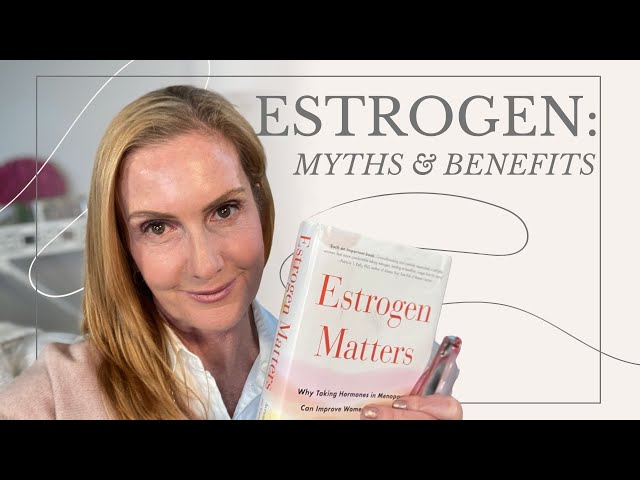Benefits of Estrogen Power of Hormones
Welcome to our comprehensive guide on the benefits of estrogen. In this article, we will delve into the fascinating world of hormones and explore the numerous advantages that estrogen offers. Estrogen is a key hormone in the female body, playing a crucial role in various physiological processes. Join us as we uncover the remarkable benefits that estrogen brings.
Understanding Estrogen
Estrogen is a hormone primarily found in women, although men also have trace amounts of it. It is responsible for the development and regulation of the female reproductive system, as well as other vital functions in both genders. Estrogen is produced mainly in the ovaries, but also in smaller amounts by the adrenal glands and fat tissues.
Promotes Reproductive Health
Estrogen plays a fundamental role in the female reproductive system. It is responsible for the development of secondary sexual characteristics during puberty, such as breast growth and the widening of hips. Additionally, estrogen helps regulate the menstrual cycle, ensuring proper ovulation and the shedding of the uterine lining.
Supports Bone Health
Estrogen is essential for maintaining strong and healthy bones. It helps stimulate the production of osteoblasts, which are cells responsible for bone formation. Estrogen also inhibits osteoclasts, cells that break down bone tissue. By promoting bone formation and preventing excessive bone loss, estrogen reduces the risk of osteoporosis, a condition characterized by weak and brittle bones.
Improves Cardiovascular Health
Estrogen has a positive impact on cardiovascular health. It helps maintain healthy cholesterol levels by increasing the levels of high-density lipoprotein (HDL) cholesterol, often referred to as “good” cholesterol. Estrogen also promotes vasodilation, which relaxes and widens blood vessels, improving blood flow and reducing the risk of heart disease.
Enhances Cognitive Function
Estrogen plays a significant role in cognitive function, particularly in memory and learning. It helps protect brain cells and supports the growth of new neurons. Estrogen also aids in maintaining healthy brain chemistry, which can contribute to improved mood and overall mental well-being.
Regulates Mood and Emotional Well-being
Estrogen influences neurotransmitters in the brain that regulate mood and emotions. Fluctuations in estrogen levels, such as those experienced during the menstrual cycle or menopause, can lead to mood swings, irritability, and even depression. By maintaining balanced estrogen levels, individuals can experience enhanced emotional well-being.
Supports Skin Health
Estrogen contributes to maintaining youthful and healthy skin. It helps promote collagen production, which keeps the skin firm and elastic. Estrogen also aids in maintaining adequate skin moisture and thickness, reducing the appearance of wrinkles and promoting a glowing complexion.
Promotes Urinary and Vaginal Health
Estrogen plays a crucial role in maintaining the health of the urinary and vaginal systems. It helps keep the vaginal lining thick, elastic and well-lubricated. Estrogen also supports the growth of healthy bacteria in the vagina, preventing infections. In the urinary system, estrogen helps maintain the strength and elasticity of the urethra, reducing the risk of urinary incontinence.

Estrogen is a remarkable hormone with numerous benefits for both men and women. From its role in reproductive health to its impact on bone strength, cardiovascular health, cognitive function, mood regulation, skin health, and urinary/vaginal well-being, estrogen plays a vital part in maintaining overall wellness. By understanding and appreciating the benefits of estrogen, we can unlock the power of hormones and lead healthier lives.
Frequently Asked Questions about the Benefits of Estrogen
What are the benefits of estrogen replacement therapy?
Estrogen replacement therapy can help relieve menopausal symptoms such as hot flashes, night sweats, vaginal dryness, and mood swings. It can also help prevent osteoporosis and reduce the risk of heart disease.
Does estrogen improve cognitive function?
Some studies suggest that estrogen may have a positive impact on cognitive function, including memory and concentration. However, more research is needed to fully understand the relationship between estrogen and cognitive abilities.
Can estrogen help with skin aging?
Estrogen can contribute to maintaining skin elasticity and moisture, which can help reduce the appearance of wrinkles and fine lines. It may also aid in preventing skin thinning and dryness associated with aging.
Does estrogen therapy affect bone health?
Estrogen plays a crucial role in maintaining bone density. Estrogen therapy can help prevent or slow down the progression of osteoporosis, a condition characterized by weak and brittle bones.
Can estrogen reduce the risk of heart disease?
Estrogen has been associated with a decreased risk of heart disease in postmenopausal women. It can help improve cholesterol levels, reduce plaque buildup in arteries, and maintain healthy blood vessel function.
Does estrogen affect mood and mental health?
Estrogen can have a positive impact on mood and mental health. It may help alleviate symptoms of depression, anxiety, and irritability in some individuals.
Can estrogen therapy help with vaginal dryness?
Estrogen therapy can effectively relieve vaginal dryness, itching, and discomfort by restoring moisture and elasticity to the vaginal tissues.
Does estrogen affect sexual function?
Estrogen plays a role in maintaining healthy sexual function by promoting vaginal lubrication, increasing blood flow to the genital area, and enhancing sexual desire. Estrogen therapy can help address sexual concerns related to menopause.
Can estrogen help prevent urinary incontinence?
Estrogen therapy can improve symptoms of urinary incontinence by strengthening the pelvic floor muscles and supporting the tissues around the urethra.
Does estrogen have any anti-inflammatory effects?
Estrogen has been found to possess anti-inflammatory properties, which may contribute to its potential benefits in conditions such as rheumatoid arthritis and autoimmune disorders.




